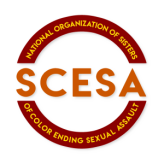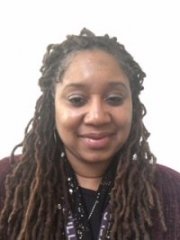LaTanya Horace is a mother, daughter, singer, actress, event producer, community volunteer and lifelong activist on behalf of Women and Girls of Color. LaTanya is the founder of The Silent Task Force (www.facebook.com/thesilenttaskforce), a culturally specific organization for the Black/African diaspora. Since 2009, La Tanya has been working worked closely with her community on multiple levels to address the systematic and historic violence that occur in families and communities. She has provided education and training, meeting her community where they are at in the churches, mosques, schools, community spaces and direct services with families. She has created services and strategies that speak directly to the Black/African community intersecting such issues as HIV/AIDS, breast and cervical health with domestic violence and sexual assault.
Most recently, LaTanya has been working directly with youths. She created the Teen & Young Adult Peer Advocacy & Mentoring Program (TYAP), a culturally specific program for Black/African girls 12-17 years old. TYAP provides comprehensive workshops/training that support Black/African girls to work on themselves, family, community and reconnect them to their culture. LaTanya also created the BOMB (Boss/Beauty of My Blackness) project to empower Black/African youths, primarily Black/African girls. The Bomb project has been implemented in schools and local communities through Seattle. LaTanya values the importance of lifting up the Black/African Diaspora community to recognize the strengths and beauty that is inherent in the community. LaTanya crosses generations and socio-economics to unite the community where no one is left out, for she believes, “this is our village”.
IN HER OWN WORDS
Here’s what LaTanya had to say when SCESA chatted with her:
Why do you think addressing sexual assault is important?
It is important that we support the victims of sexual assault and speak out about it. I have worked with families that have generations of sexual assault and nothing was done about it because in our communities, “what happens in this house stays in this house”. This is entirely wrong because there is no accountability. There is a sense of normalcy and women and girls are left with the guilt and shame of it all and never have an opportunity to heal. Perpetrators who are not made to be accountable continue with this behavior harming more women and girls. Not to mention I have worked with more men and young boys who have also experienced sexual assault.
Why should Communities of Color address sexual assault?
Because we are who we’ve been waiting for to change the direction of our communities and it is us who must hold members of our communities accountable and this is the work of the community not organizations that are not vested in our communities to do nothing more than what we call, “poverty pimpin”.
Why focus on Women and Girls of Color?
The rates for sexual assault for brown and black women/girls are unbelievable. In our communities, we [women/girls] are the least protected and the data doesn’t reflect how much more we experience sexual violence. However, I know based on my work in the community over the years, that most of the sexual violence happens when we are much younger, and it is almost never reported. Often times if we have to testify against people in our homes or communities; and there is almost no protection against the perpetrators.
What do you enjoy most about your work?
The opportunity to witness the light bulb go off in someone who is perplexed about their trauma; that moment when they take their power back; that moment when they realize they didn’t ask for it or deserve it or because of how they were dressed that warranted the act of sexual violence. I also appreciate when years after the seeds were planted and I wasn’t sure they received what they needed I get stopped in the streets, grocery stores, events, libraries and am being told, “thank you, you saved my life or you helped me realize that, “it wasn’t my fault”.
What are some of the lessons you have learned addressing sexual assault?
There is a lot of stigma when doing this [sexual assault] work, a lot of victim blaming, slow to no response from the communities and in order to prosecute perpetrators it often times leaves victims in unsafe environments so they will not testify.
What are the challenges in addressing sexual assault?
Historical Trauma; stigma in our community; lack of protection or value of brown and black women/girls in our community; patriarchy and believing we shouldn’t put good black men in jail even though we know most of the rape and abuse in our community are at the hands of our men.
How do you take care of yourself?
I’m learning how to say, “No” when I need to and taking more walks, engaging in the arts as I’m an artist and learning how to play the guitar as a hobby. I’m also engaging in more women empowerment events.

